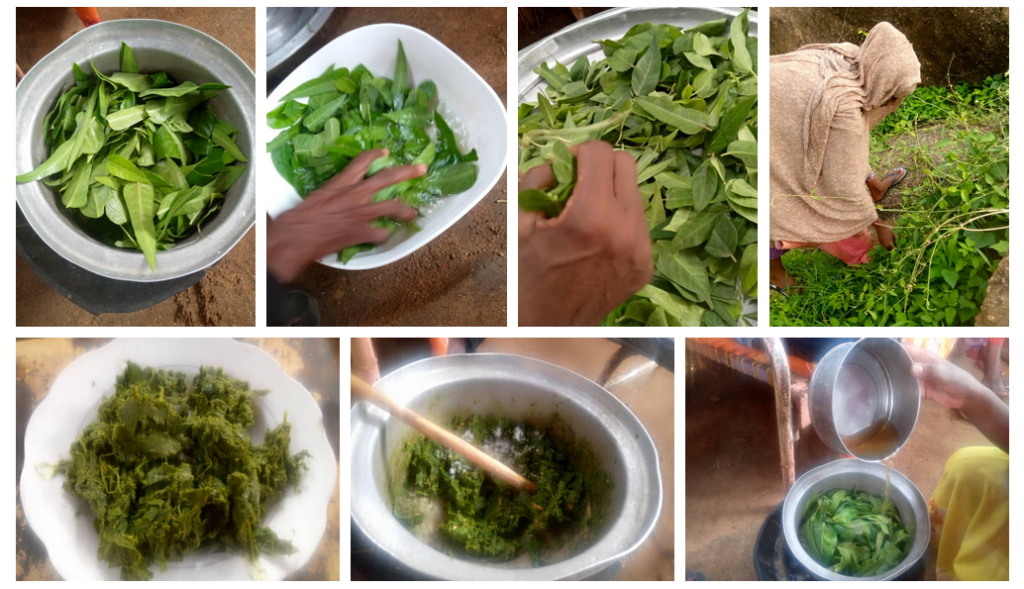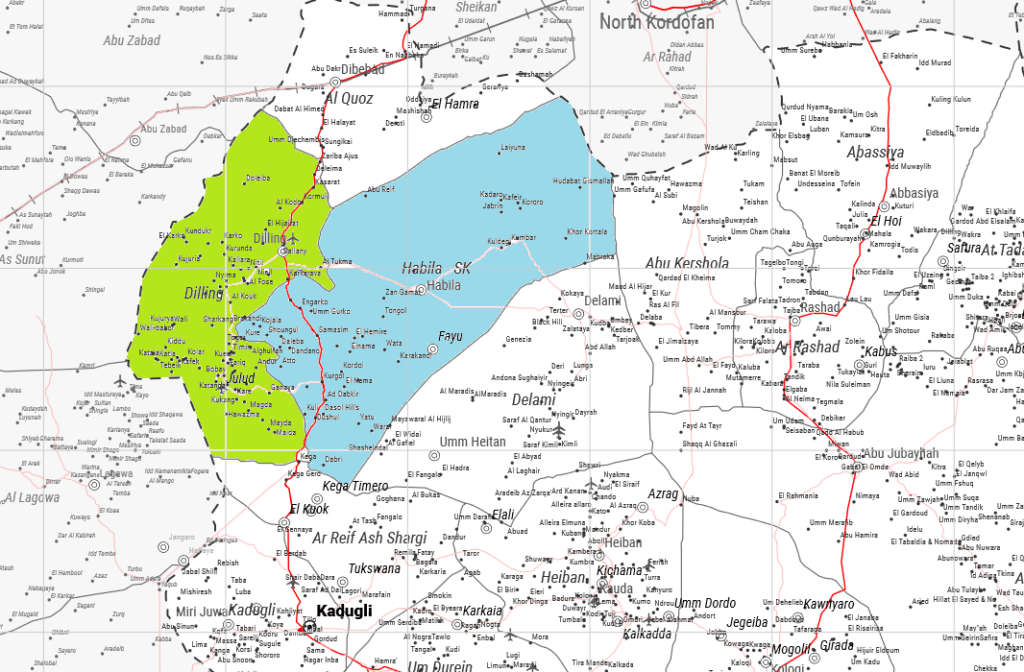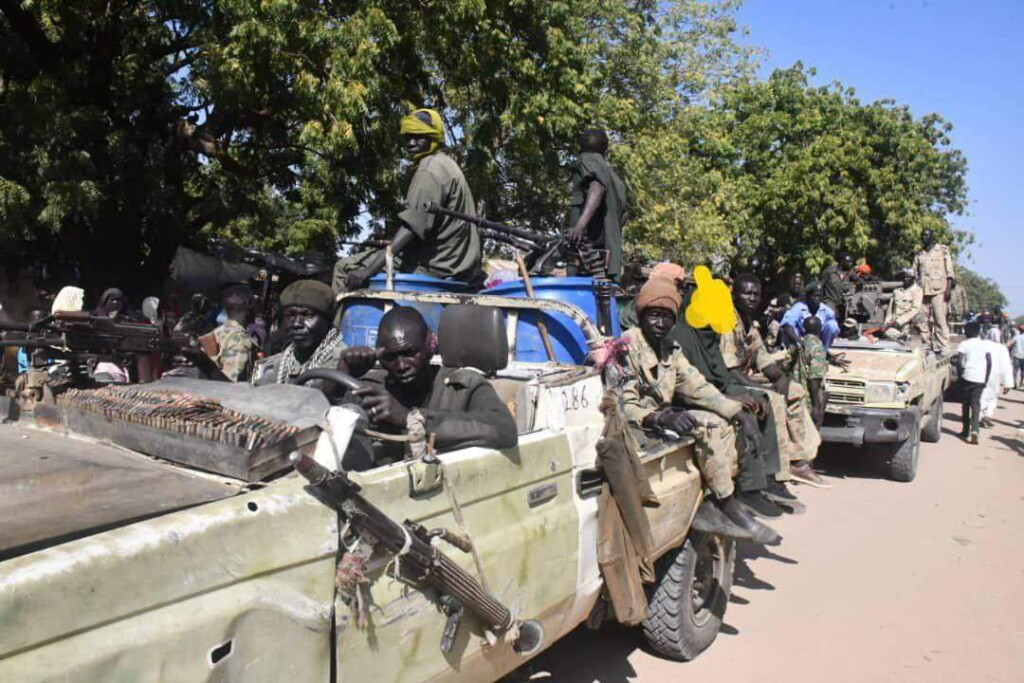Sudan hunger: mothers feed their children tree leaves in besieged Delling

Preparing tree leaves for consumption in Delling, South Kordofan, July 2024 (Photo: Supplied)
Mothers living in Delling in the northwestern part of South Kordofan are crying for help, as they and their children are suffering from a lack of food. Basic commodities, let alone humanitarian aid, hardly reach the town, as it is besieged ‘from all sides’.
Safiya Jibran, a woman living in the town of Delling in the northwestern part of South Kordofan, told the Sudan Tribune* that hunger is rapidly growing in the area of Delling.
Most of the people in Delling, especially the displaced in the shelters, are resorting to eating tree leaves and animal feed such as ambaz, which exists of the remains of beans and sesame after oil extraction.
Jibran said that she is unable to buy food on the market anymore, including sorghum. Prices rose four times over the past three months, and she has no source of financial income because of the war.
“There is an unprecedented rise in prices in Delling,” Jibran told Sudan Tribune. “The price of a [100kg] sack of sorghum now reached SDG300,000**,” she noted.
The regular communications and internet outages also exacerbate the people’s suffering. As cash money has become scarce, payments with bank applications, like Bankak and Fawry, have become the norm.
“All roads leading to the town are closed. We need rapid intervention, as the people here are dying of hunger.”
Maryam Azrag, who fled with her children to Delling told Sudan Tribune that every morning after dawn prayers, she joins the long line in the shelter centre they are living in, to obtain a small quantity of lentils “barely enough for one person”.
Her children now eat one meal a day. “We are suffering, our bodies are tired, and we need solutions. If this situation continues as it is, people will die of hunger very soon,” she said.
Osman, who worked as a civil servant in Delling before the war, is now begging in the market to get a meal for his seven children. “I have become unemployed and there are no job opportunities. Even hard work is not available. I have not received my salary for more than six months. I had no choice but to beg for food to save my children from starvation.”

Besieged
Delling and other towns in South Kordofan, including its capital Kadugli, are living under an almost complete siege, imposed by the field control maps of the three warring parties in the state: the Sudanese Armed Forces (SAF), the paramilitary Rapid Support Forces (RSF), and the Sudan People’s Liberation Movement-North, led by Abdelaziz El Hilu (SPLM-N El Hilu). All vital routes have been closed, which severely hinders the flow of basic commodities.
Since the outbreak of the war between the SAF and the RSF more than 15 months ago, the western regions of South Kordofan, especially Kadugli and Delling, have been dependent on the El Na’aam market on the border with South Sudan, where its goods come from, and Um Jameina in West Kordofan.
Volunteer Radwan Rajab told Sudan Tribune from Delling that the RSF “are tightening the noose” on the town from the north and east and preventing the passage of humanitarian aid and commercial convoys to Delling. The SPLM-N El Hilu is besieging Delling from the west and south.
Delling used to receive food supplies from the N’Djamena market, about 50 kilometres west of the town, an area under the control of the SPLM-N, Rajab explained. “But during the past three months, the SPLM-N fighters are confiscating any vehicle transporting goods to Delling, claiming that sorghum and other foodstuffs are strategic goods, which are only permitted in the areas under their control.”
He lamented the large medicine crisis in Delling, which, he said, threatens patients suffering from chronic diseases.
Not only the SPLM-N but also RSF paramilitaries seize vehicles loaded with merchandise, causing traders to refrain from visiting the area.
A merchant reported from the Delling Market that he and his colleagues these days risk their lives in order to deliver goods. They now rely on pack animals (donkeys, camels, and cows) to carry the goods, often walking for more than 12 hours on rough roads.

Overcrowded
Delling is the second largest town in South Kordofan, after the capital Kadugli, with a population of about 189,370 people. It is home to tens of thousands of displaced people, many of whom fled the recent battles in neighbouring Habila. They are living rough in makeshift shelters and their livelihood depends on limited efforts by young members of local emergency rooms.
According to the Humanitarian Aid Commission (HAC) of Delling locality, more than 41,000 newly displaced have arrived in the town since the SAF-RSF war broke out in April 15 last year, in addition to the nearly 50,000 displaced people who sought refuge in the area since June 2011, when war broke out again between the army and the SPLM-N.
In its recent report on the situation, HAC stated that the town’s residents and the displaced are, apart from health services, in urgent need of water, sorghum, flour, oil, onions, and lentils. The displaced also need tents, tarpaulins, mattresses, household utensils, mosquito nets, water cans, and clothes. HAC also mentioned the need for psychological support and awareness raising concerning the dangers of weapons and unexploded ordnance (UXOs).
Radio Dabanga reported in February that more than 3.5 million people in areas controlled by the SPLM-N El Hilu in the Nuba Mountains and Blue Nile region were already facing ‘extreme hunger‘.
* This report was produced as part of the #StandWithSudan campaign launched by the Sudan Media Forum in April this year, to draw attention to the humanitarian disaster, avert famine, and halt violence against civilians in Sudan. It has been published simultaneously by 27 press and media institutions and organisations participating in the campaign.
** The Sudanese Pound seems to have reached the stage of a ‘free fall’ against the US Dollar and other hard currencies on the parallel market. In three months, its value halved. The US Dollar sold for SDG1,280-SDG1,300 at the parallel market on March 26, while three days ago it was trading between SDG2,500 and SDG2,600.











 and then
and then